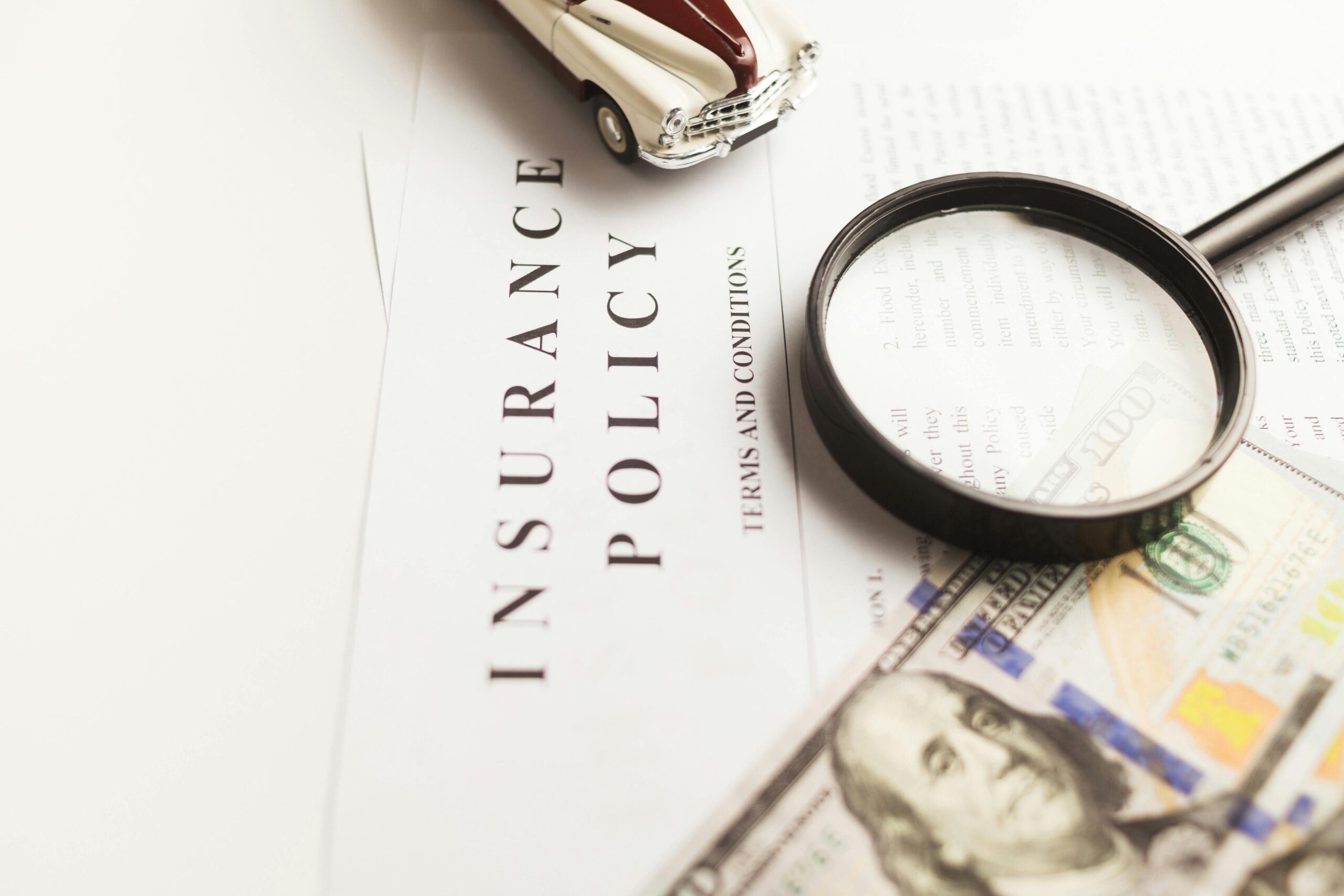
Securing your financial future by making the right insurance choices is absolutely important. Life is full of uncertainties, which can bring both nice surprises and financial trouble. Insurance essentially works as a safety net, which can give you a sense of security and protects you from unexpected events. Along the way to know how satisfied you are with the services your family needs, you will see how to compare different insurance plans, evaluate their costs, and finally decide on the insurance plan that is most suitable. The comprehensive guide shall show you how to assess your needs, compare options, evaluate costs, and make well-informed decisions about insurance policies.
Understanding the Importance of Insurance
Insurance is one of the most important risk management tools. It covers you from the financial risks that happen suddenly to make sure that you can fulfill your demands without disturbing your own economy. Should something go wrong, you can manage the problem with the right coverage and enjoy life without worrying about potential setbacks.
Just as you wouldn’t wait for rain to buy an umbrella, you shouldn’t wait for a crisis to secure insurance. Buying insurance before something happens is simply being proactive and being ready for whatever comes may be your only option when dealing with unforeseeable events in life. If you plan ahead with insurance, you won’t be hit with any surprise personal or business problems because of your actual situation.
Types of Insurance Policies
Although the number of insurance policies is so high, almost every single one has been designed to cover specific risks. Knowing these choices will allow you to define your needs and the coverage you want.
- Health Insurance: It is mainly for medical expenses and may include preventive care and mental health services among doctor visits, stays in the hospital, and prescriptions. The insurance policy also covers periodic health checkups and psychological consultations.
- Car Insurance: This insurance policy is a government requirement in most states and it is supposed to cover damage or personal injury from a car accident. Also, besides, theft, vandalism, and natural disaster coverage are optional add-ons for your vehicle though.
- Home Insurance: Protects the homely stuff as well as your residential structure from fire, theft, and natural disasters. Furthermore, it might include additional living expenses if you require moving to a temporary place.
- Life Insurance: In case of your death, this insurance policy gives your beneficiaries financial aid, covering funeral costs and ensuring the financial stability of the people you love.
- Disability Insurance: Income protection is provided to you if you are not able to work due to illness or injury.
- Travel Insurance: It covers the most frequent events like trip cancellations, lost luggage, and medical emergencies while you are on a journey.
Each type of insurance has its own unique features and coverage options. Depending on your personal situation, decide which policy is the most relevant to you.
Assessing Your Individual Needs
There is no one-size-fits-all insurance coverage plan. Thus, it’s crucial to look at your own individual needs and situations. Think about parameters like:
- Age and Health: Weaker young individuals can need lesser health briefs than can elderly or those already in the state of being ill.
- Lifestyle: If you are a person that drives often than that of someone who seldom does, then you need a greater car insurance coverage. [Alternatively: Lifestyle: In case you find yourself on the road frequently, you may require higher car insurance coverage than those drivers who barely touch the road.]
- Assets: If you have a home, insuring it with home insurance is the most basic step to shield any that you have invested in it.
Tapping into these parameters, you can have a more realistic understanding of your own values and thus find the right insurance coverage for you.

Comparing Insurance Options
The thing that makes it complex, in the first place, to own an insurance plan is the presence of a large number of different actionnaires to pick from. Naturally, learning the jargon is the most awkward part, nevertheless, being with the term will certainly make the process easier In any case, being able to comprehend the basic terms can help.
- Coverage Limits: It is the most that the insurance company will be able to deliver in case it’s a claim that is covered. If you are not confident, you should increase your coverage limits to cover potential risks.
- Premiums: This is the payment that you give for the insurance policy, often monthly or annually. Assess the price of a plan to the protection provided by the insurance company.
- Deductibles: The portion of the total expenses that you need to pay yourself at the outset before the insurer contributes to the payment of claims. Paying a higher sum at first will reduce your premium, but it will result in a higher payment in the event that a claim is made.
One way to get on your bike with the policy proposal is to explore the primary concepts underneath that guide balling the horse with the purchase of insurance, which, in turn, could be a means to skip over moments of wastage of time, money and, in the end, experience stress.
Avoiding Common Mistakes
When it comes to insurance, there are a plethora of common mistakes people tend to make. Below are the common mistakes that you should avoid to make sure you have the right coverage:
- Not Having Enough Coverage: Inadequate coverage can lead to a situation where you find yourself in financial trouble during a major loss.
- Not Reading the Fine Print: Always be sure that you understand the terms and conditions of your policy before you agree to anything.
- Choosing the Cheapest Option: Trying to find the lowest priced insurance policy might result in no insurance. Besides the cost of insurance, make sure you are buying protection of good quality.
Having knowledge of these mistakes will make it easy for you to take your insurance journey to the next level.
The True Cost of Coverage
It’s common to just focus on premium costs, but seeing the full picture of the issue is quite essential. Take, for example, the deductibles, coverage limits, and the exclusions when you are examining policies:
- Deductibles: Lower premiums can come together with a high deductible. Make sure you can afford the deductible if you must make a claim.
- Coverage Limits: Higher limits yield more financial security but might also come at a higher premium.
- Exclusions: Make a thorough search and find out what your policy does and does not cover.
Balancing the premium and complete coverage is the most critical factor when it comes to choosing the right insurance.
Proactivity is Key
The primary step involving insurance is better done before it is used. Do not wait for a sickness alarm, an auto accident, or an act of God to realize that you don’t have enough or you are not insured at all. Review your contracts regularly and find uncovered areas of insurance.
Getting quotes from various insurance providers and comparing their cover can lead you to optimal decision-making. It is very important to know that putting off something may bring with it some big bills.

The Power of Informed Choices
The kind of choices you make that are somehow concerned with your insurance coverage can be a real game changer for your financial wellness. Although risky, going insured can be a way of getting better insurance coverages, so everybody has to achieve this balance. The easiest way to start is to think about your problems but not just one at a time. It is rather a spiral where you begin by examining a problem, go on to examining the problems emerging from it and finally return to the main problem.
Regardless of difficulty, insurance in reality can also be both an expense bucket and an investment for insurance. A piece of advice given on the insurance of the car was to try different companies and buy it online as it would be cheaper.
Sharing the Knowledge
Given the fact that at this point you know the proper method of choosing the suitable insurance policies, think about telling others and family members about it. Let them protect themselves from unforeseen events and their loved ones as well.
Urge them to take charge of their money ways as well as making sound financial decisions that will ensure their insurance protections. Through knowledge transfer, we can enhance the capability of others to make wise decisions in their financial comfort, which is the only way to safeguard ourselves and our communities in the future.
Regularly Reviewing Your Insurance Policies
At the time of the event, it is obvious that a variety of insurance policies are also in demand; for this reason, the insurance agency is observing the changes of life in order to match insurance coverage with changing times of life. It is indeed critical to review and update regularly your insurance policies. Situations in life such as marriage, giving birth to a child or purchase of a property are some of the big factors that can cause the changes in your required coverages.
Getting a refresher course annually or after significant changes can help you reevaluate your policies. This approach will help you avoid the hassle of keeping your coverage relevant to your current state by automatically addressing all situations that may arise.
Conclusion
Choosing the right insurance policies is one of the main steps towards your financial well-being, and it can help you to be at peace and avoiding panic. Met by the clone, everything that goes on your budget is started by creating an insurance policy. However, remember that choice is often situational and is not confined to one method solution. Along with the careful assessment of your personal situation, having a detailed insurance plan in place would be the prerequisites to secure yourself properly.
Gain full mastery over your financial wellness, with savvy insurance decisions. Keep in mind, the appropriate coverage is the one that gives you the required security you need to survive the struggles of life and at the same time makes you enjoy a happy life without any tension. The fun you get from your trip however is only limited by how much fun you are open to taking. Acting now gives you the freedom to know that you are making the best decisions for you and your family members.







